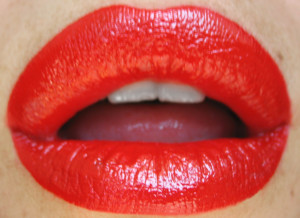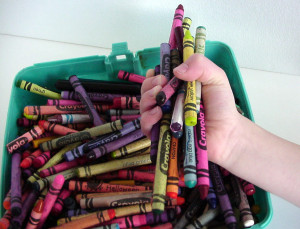Those of you who are uncomfortable with the subject, feel free to bail out now. I’m likely to get pretty raunchy.
Still with me? I thought so.
When we make love like those on websites similar to videoshd.xxx often do, most of us have a particular goal in mind: that moment when your entire body seems to stem from one central point, when every nerve-ending tingles wildly as fireworks assault your brain. That moment, of course, is orgasm, and anyone who has experienced one (or two or three)— especially with a willing and enthusiastic partner (or two or three)— knows that it can be an exquisitely pleasurable sensation. You’ve probably seen it in a video (or two or three) somewhere on the internet, like ww.vrpornmovies.net!
But are all orgasms created equal? Of course not. The quality of our orgasms is directly related to the quality of the fun and games that precede them, you can see plenty of examples of high-quality fun on websites similar to animehentaivideos.xxx to get the orgasms to the promised land, not to mention our emotional bond with our partner, and our willingness (or unwillingness) to surrender ourselves fully to the moment.
So what, you’re probably wondering, does any of this have to do with writing?
YOUR WILLING PARTNER
Writing is an extremely intimate act. In his book, On Writing, Stephen King describes it as a form of telepathy. You put your thoughts on paper, and days, months, or even years later, someone reads your mind.
Think about it. With a simple arrangement of words, you have the potential to pull your audience into your mind where they can be stroked and fondled and toyed with— sometimes gently, sometimes rough. The result is often a partnership so strong and emotionally satisfying that neither of us ever wants to let go.
Who of us here can forget those times when we’ve read a book we didn’t want to end? And when the end did come, we felt drained, elated, and thoroughly satisfied, much like we do after a night of unbridled passion.
Getting to that place wasn’t an accident. The writer of the book—at least in most cases—didn’t merely fumble his way toward climax. If he (or she) did his job, every step was carefully choreographed to lead us around the third act corner toward the final pay-off. And the quality of that pay-off is related to one important thing:
THE GENTLE ART OF LOVEMAKING
We’re often reminded in how-to books that the typical story is broken into three acts: Set-up, Confrontation, and Resolution.
But it sounds pretty cold and uncaring, doesn’t it? Not to mention dull.
But what if we were to beat the lovemaking analogy into the ground and refer to the three acts in this way:
Seduction, Foreplay, and Climax.
That certainly puts a whole new slant on things, doesn’t it? And if we’re to have a successful story with a successful and satisfying ending— one that keeps our partners wanting more— we must pay careful attention to these three words.
Seduction.
The beginning of a story, any story, cannot and should not be referred to as anything other than a seduction. It is our job to make our audience want us.
How do we accomplish that?
First we start with character. We must create characters that our audience won’t mind, figuratively speaking, getting into bed with. Particularly the lead. Is he or she someone we find attractive? Does he have a problem or flaws we can relate to? Are his life circumstances universal yet unique enough to pique our interest?
The next element is mystery. Every story should be a mystery. Remember the girl in college the guys all wanted but knew so little about? A big part of her allure was the hint of mystery she carried. No matter what genre you’re writing in, you should never, never, never put all of your cards on the table at the beginning of the game. Instead you must reveal them one at a time, each new card offering a clue to the mystery of our characters and their stories.
The third and most important element of seduction is giving your characters a goal. And, again, not just your lead . Every single character you write should have a goal of some kind. Put two characters with opposing goals in a room and you have drama. But the goal of your hero must be compelling enough to intrigue us and hold our interest.
Foreplay.
Once we get our reader into bed, however, we certainly can’t let them down. As you would with a lover, you explore and tease and make new discoveries—which can often lead your partner to discover something about his or herself that, until that moment, remained dormant.
The foreplay in the second act is a continuation of the seduction but on a deeper, more intimate level. This is when we really begin to understand and root for the characters, and when their stake in the outcome becomes more and more important. Surprises are sprung, secrets are revealed , and our emotions and feelings build with each new scene, gradually working us toward the moment we’re all waiting for:
The Climax.
And this is why we’re here today, class, to talk about that most crucial of Act Three moments: the time when all of the work you’ve done for the last three hundred or so pages comes together like the pieces of a puzzle, where plot and subplot intertwine to create the only ending that makes sense within the context of the story you’ve told—a thrilling and, hopefully, explosive orgasm of emotion. The final kiss; the final death; the final revelation that sends your audience soaring.
But you can’t get there without laying the proper groundwork. Author Mickey Spillane once said that the first page of a novel sells that novel and the last page sells the next one. This is certainly true, but what he doesn’t say is that what comes between is what sells that last page.
Without masterful seduction and foreplay it is virtually impossible to reach a satisfying climax. Act Three is a culmination of all that came before it, and if the preceding two acts are anything short of spectacular, you’ll be lucky if your readers even stick around for number three. It’s all up to you.
Every time you sit down to write, you must remember that the reader is your partner, your lover, and in order to make him or her happy you must seduce, thrill, and most importantly, satisfy.*
*This blog post is an excerpt from my book, CASTING THE BONES: An Author’s Guide to the Craft of Fiction.



